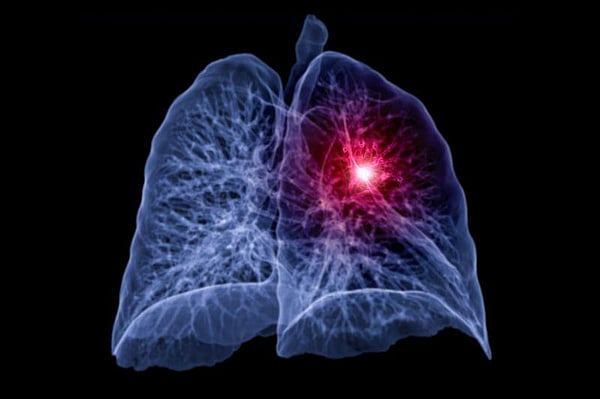Quitting Smoking Early Linked to Lower Mortality After NSCLC Diagnosis

FRIDAY, May 5, 2023 (HealthDay News) -- For patients with non-small cell lung cancer (NSCLC), quitting smoking early is associated with lower mortality following diagnosis, according to a study published online May 5 in JAMA Network Open.
Xinan Wang, Ph.D., from the Harvard T. H. Chan School of Public Health in Boston, and colleagues characterized the association of years since smoking cessation before diagnosis and cumulative smoking pack-years with overall survival among patients with NSCLC. Data were included for 5,594 patients with NSCLC: 14.2, 59.1, and 26.7 percent were never smokers, former smokers, and current smokers, respectively.
The researchers found that mortality was increased for former smokers and current smokers compared with never smokers (hazard ratios, 1.26 and 1.68, respectively). Among ever smokers, there was an association for log2-transformed years since smoking cessation before diagnosis with significantly lower mortality (hazard ratio, 0.96). In a subgroup analysis stratified by clinical stage at diagnosis, among patients with early-stage disease, overall survival was even shorter for former and current smokers.
"To better inform treatment selection and to improve lung cancer prognosis, detailed smoking history should be collected and studied further in conjunction with molecular and genomic biomarkers in future epidemiological and clinical studies," the authors write.
Related Posts
Health Officials Say U.S. COVID-19 Cases Fell 60 Percent Since September
FRIDAY, Oct. 29, 2021 (HealthDay News) -- COVID-19 cases have plunged by 60...
Few Americans Understand Alcohol’s Impact on Cancer Risk: Survey
FRIDAY, Dec. 2, 2022 (HealthDay News) -- Alcohol increases the risk of cancer,...
Short Sleep Duration Linked to Increased Risk for PAD
FRIDAY, March 17, 2023 (HealthDay News) -- Short sleep duration is associated...
Your Dog May Help Keep Disability at Bay
https://consumer.healthday.com/pet-ownership-26566... Credit: HealthDay
